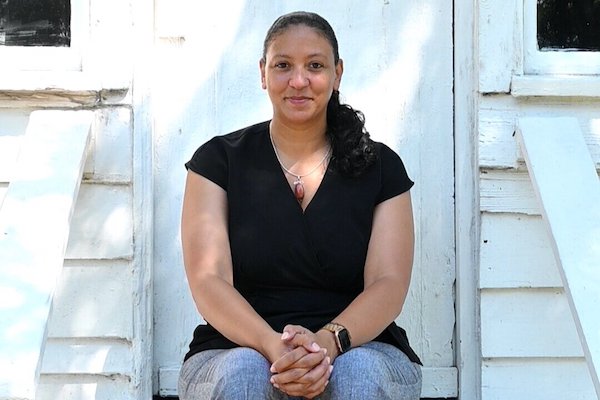USCB Alumna Victoria Smalls Leads Gullah Geechee Cultural Heritage Corridor
The way of life that Victoria Smalls knew growing up on St. Helena Island is threatened, and part of her new job is to help protect it. Smalls is the new executive director of the Gullah Geechee Cultural Heritage Corridor, a nonprofit group dedicated to preserving and promoting the cultures and traditions of Black people in the rice-growing regions of the Southeast. As a member of the Gullah Geechee community, she knows first-hand the strengths and challenges of this unique group.
“This is a huge responsibility and an incredible honor to serve my community,” she said. “I feel like I have been preparing for this my whole life.”
Smalls, who graduated from the University of South Carolina Beaufort in Spring 2021 with a bachelor’s degree in Interdisciplinary Studies, started her new job on July 26, after serving on the Gullah Geechee Cultural Heritage Corridor Commission from 2016 to 2020.
The corridor is a Congress-designated National Heritage Area that runs from St. Johns County, Fla. up through part of the North Carolina coastline. Along this chain of sea islands, enslaved Africans transformed the marshy, intertidal landscape into rice farms. These days, this region contains some of the most sought-after and valuable land in the U.S. As the corridor’s director, Smalls is charged with helping Gullah Geechee land owners protect ancestral land, assess their options, and benefit from the current national and international interest in environmental sustainability, culture heritage tourism, locally sourced food and other trends. Smalls said she sees enormous potential to attract and educate visitors interested in Gullah culture to the region.
“There is no Gullah Geechee culture without the people,” she said. “Members of the Gullah Geechee communities, like everyone else, need economic opportunity.”
In 2013, the U.S. secretary of the interior and the National Park Service approved the Gullah Geechee Cultural Heritage Corridor Management Plan to recognize the important contributions of Gullah Geechee people, as well as their history, traditions and origins. An umbrella organization, the corridor helps draw attention to various groups and projects within its domain. Among Smalls’ most important initial tasks is to guide the corridor through its federal reauthorization process this year.
All of Smalls’ past work experience has prepared her for this new role. She began her cultural preservation work at the Penn Center on St. Helena Island in 2012 and served five years as director of history, art and culture, and director of the center’s York W. Bailey Museum. She then worked as program manager at the new International African American Museum in Charleston before returning to the Penn Center in 2019. Later she became a park ranger with the Reconstruction Era National Historical Park in Beaufort, where she helped visitors and locals learn about the end of slavery and the achievements of newly freed African Americans. All these roles involved education and outreach about Gullah Geechee history, art, music and other cultural traditions.
In her new position, she will work to create and strengthen strategic alliances and will promote teacher training and modified curricula to help students throughout the corridor and across the U.S. learn more about Gullah Geechee cultures, she said.
Another focus will be documenting Gullah history and contemporary life.
Smalls credited her professors at USCB, especially Dr. Libby Ricardo, with helping her identify her academic strengths and encouraging her, a busy working mother, to finish the bachelor’s degree she started years ago at South Carolina State University.
“Interdisciplinary Studies was a perfect fit for me based on my lived experiences,
earlier background in Physical Education and Early Childhood Education and career
goals,” she said. 